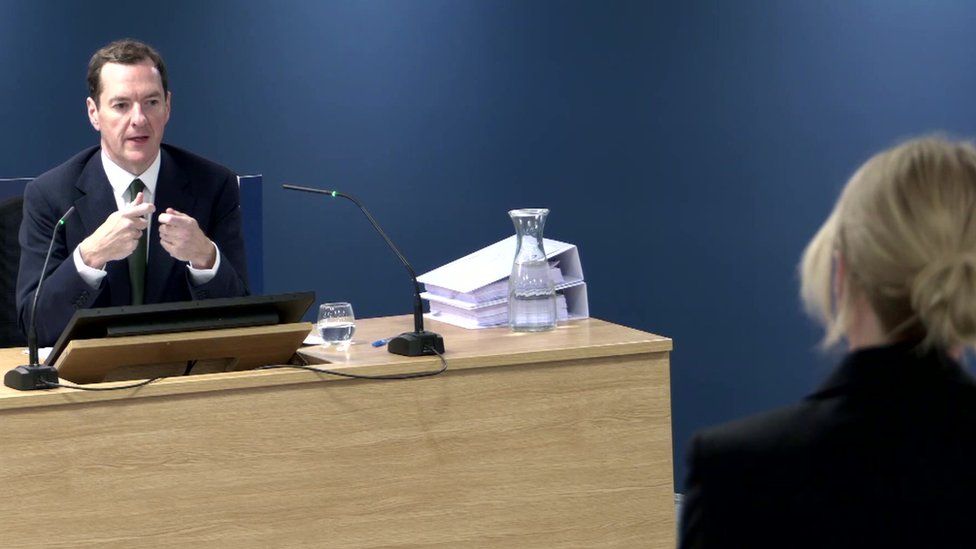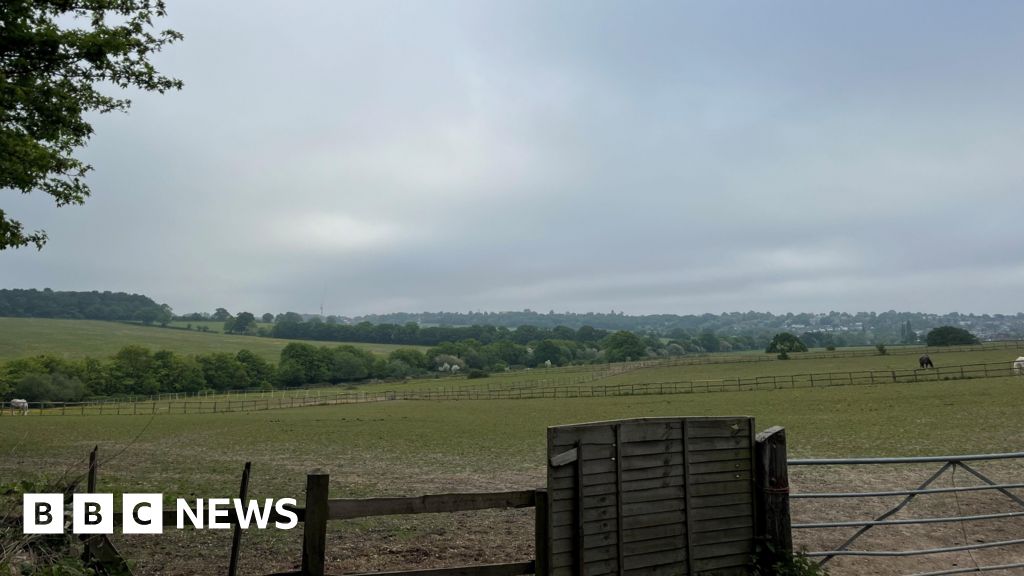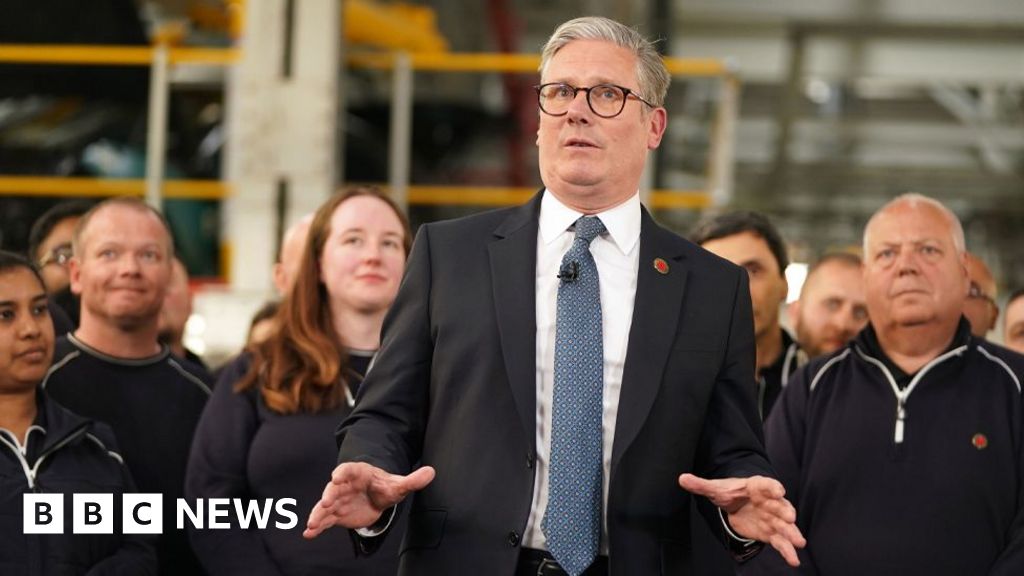ARTICLE AD BOX

By Kate Whannel
Political reporter, BBC News
Former Chancellor George Osborne has said his spending cuts meant the UK was better able to cope with the financial pressures of pandemic.
Appearing at the Covid Inquiry, he argued that without austerity Britain would have been "more exposed".
He rejected claims his approach left the health and social care "depleted" ahead of the Covid pandemic.
The inquiry is examining the UK's resilience and preparedness ahead of the coronavirus pandemic.
Former Prime Minister David Cameron and ex-senior minister Sir Oliver Letwin have also given evidence this week.
Last week Sir Michael Marmot, a professor of epidemiology at University College London told the inquiry that the UK had entered the pandemic with "depleted" public services.
Asked by inquiry lawyer Kate Blackwell KC if he agreed with the statement, Mr Osborne said: "Most certainly not, I completely reject that."
He accepted more money could have been spent on the NHS, but said as chancellor he had to balance demands for resources from other public services.
"You can't just say we like public spending to be higher without explaining where you get money from," he told the inquiry.
He said the public had elected the Conservatives to government in 2010 and 2015 knowing the party was planning to cut public spending.
During the period, cuts were introduced in welfare spending, school building programs, local government, police, courts and prisons. There was also an overall squeeze on health spending.
'No planning'
Mr Osborne - who was chancellor from 2010 to 2016 - said: "If we had not done that Britain would have been more exposed, not just to future things like the coronavirus pandemic, but indeed to the fiscal crisis which very rapidly followed in countries across Europe.
"If we had not had a clear plan to put the public finances on a sustainable path then Britain might have experienced a fiscal crisis, we would not have had the fiscal space to deal with the coronavirus pandemic when it hit."
Other organisations have questioned this claim. Writing in a blog, Phil Banfield of the British Medical Association said a "failure to ensure the NHS was properly staffed and resourced in the decade leading up to the pandemic, meant that when it did arrive, there was no capacity to meet the tsunami of demand."
During the one hour 20 minute question session, Mr Osborne was also asked about the Treasury's planning for potential national lockdown.
He said the department had plans for an outbreak of influenza but added "given what subsequently happened that was very small scale".
"There was no planning done by Treasury - or any western Treasury - for asking the entire population to stay at home for months and months on end.
"If someone had said to you the UK government should be preparing for a lockdown that might last for months, then I have no doubt the Treasury would have developed schemes it did subsequently develop around the furlough and the Covid loans.
"Planning could have been done for a furlough scheme in advance - I'm not clear that would have made a better furlough scheme than the one we as a country actually saw ."
'Lasting regret'
Earlier in the day, Sir Oliver Letwin, a senior minister in David Cameron's government, told the inquiry a rapid turnover of staff hindered the government's ability to plan for pandemics.
He said it was "disastrous for the country" that the civil service was based on people moving to new positions, rather than gaining experience in areas such as resilience.
He also told the hearing his "great regret" was not getting more involved in pandemic planning.
He said he was told the area was being "well-looked after" but felt that if he had examined the issue he might have pushed officials to prepare for pandemics other than flu ones.
"That is actually what I should've done and it's a matter of lasting regret that I didn't."
On Monday, Mr Cameron told the same inquiry that not preparing for a range of different pandemics had been a "failure".

 1 year ago
37
1 year ago
37








 English (US) ·
English (US) ·